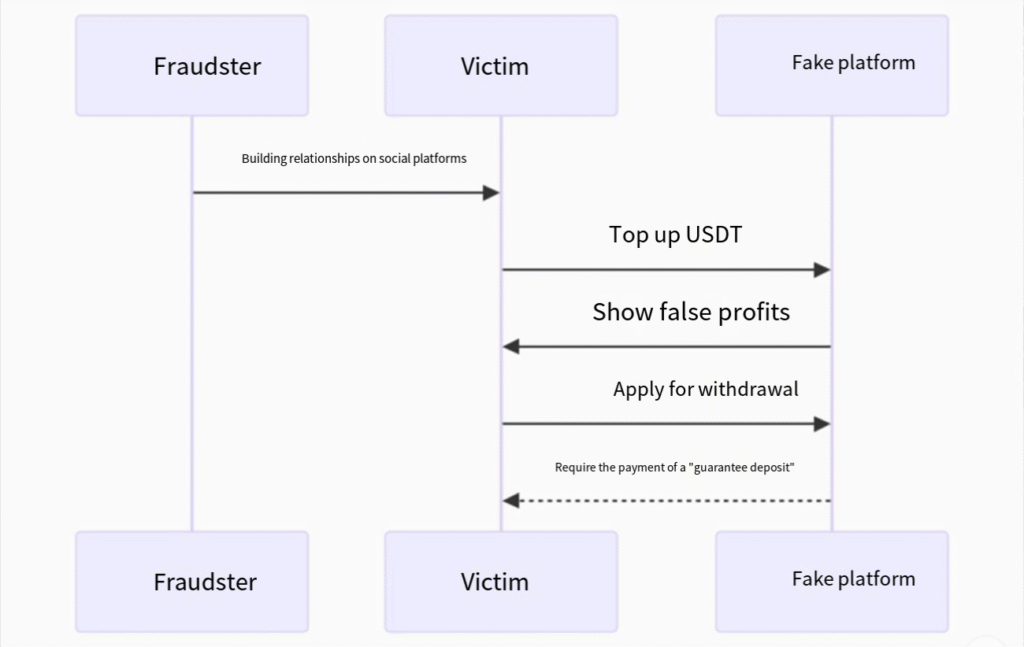In remote work scams, scammers pose as recruiters or managers looking to hire remote, part-time workers. These scams often target people who have provided their contact information on online job boards. The scammers create elaborate fake websites and ask victims to complete sets of repetitive tasks (e.g., “optimizing apps” and “boosting products”). The victims are told that they will be paid commission in cryptocurrency for completing these tasks based on the value of the product being promoted. The scammers usually ask victims to send a small amount of cryptocurrency to open a work account to get started in the position. These positions have a confusing compensation structure that requires victims to make increasing cryptocurrency payments to get assigned additional tasks.
Victims are led to believe they are making money—and may even be able to withdraw small amounts of their “earnings” in the beginning—but in reality, the scammers are just manipulating victims into sending cryptocurrency to the scammer.
How to Spot and Avoid a Remote Work Scam:
- Never send cryptocurrency to an alleged employer.
- If a company only offers to pay you in cryptocurrency, they are almost certainly a scammer.

Key Evidence:
On-chain analysis shows that all incoming funds were directed to the same cold wallet.
Scam fund flow identified. Freeze request submitted. Funds recovered!
2. Fund Tracing Tutorial
Blockchain Explorer Practical Guide:
Enter the suspicious address in Etherscan (blockchain query link).
Mixer Identification:
| Feature | Normal Transaction | Tornado Cash |
|---|---|---|
| Transaction Amount | Random | Fixed (1 / 10 / 100 ETH) |
| Receiving Address | Publicly linked | New, unrelated address |
Scam Fund Flow Diagram



